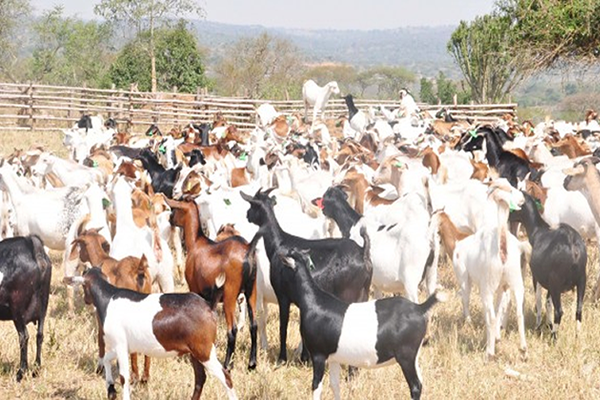

A new programme aimed at turning around the agricultural and trade fortunes of northern Uganda, has been launched.
The Uganda Programme on Sustainable and Inclusive Development of the Economy (UPSIDE) will be facilitated to a tune of Shs130b by the government of Denmark over four years, between 2019 and 2023.
The grant has been channelled through the Agricultural Business Initiative (aBi), a social enterprise that channels development cooperation funding to agribusiness and agricultural service providers in Uganda.
The LC V chairperson of Adjumani District, Mr James Eleku, observes that northern Uganda still lags behind in development, standing at three per cent as contribution to the Gross Domestic Product (GDP). Sixty nine per cent of the people from the region are subsistence farmers.
“We want partners who are going to plan for us, with us. A lot of aid has come to northern Uganda but when you traverse the districts, you don’t have evidence. Our people have been given funds when they are not prepared for the utilisation of the funds. Let’s be very categorical and track the funds to the last beneficiary, that’s going to get this money,” Eleku observes.
“We are very passionate about supporting private sector development through the agricultural sector because we think that it is the prime sector that can drive development,” head of mission at the Royal Danish embassy, Majbrit Holm Jokabsen, says.
Agro processing
The state minister for northern Uganda Grace Kwiyucwiny argues that without agro processing, UPSIDE or any programmes aimed at fighting poverty through agriculture will not achieve its objectives. With aBi, ambassador Holm says they are keen on value addition with support towards Trademark East Africa to actualise improved standards for agricultural products so as to make it easier to export Ugandan products.
The Nuri programme seeks to tackle the issue of climate change which continues to affect yields owing to unpredictable weather patterns.
According to Nuri’s programme management advisor, Rilla Kirk, part of the main focus of the Nuri programme will be building capacity through extension workers and mitigating and adapting to climate smart agriculture.
Francis Otim Okello, the regional coordinator of the programme in the Acholi region, explains that beneficiaries are farmers and the refugee community in the districts of Kitgum, Lamwo, Agago, Pakwach, Nebbi, Apach, Arua, Zombo and Adjumani.
In addition, Dr Peter Ngategize, the head of Private Sector Development Unit (PSDU) in the Ministry of Finance, Planning and Economic Development, says more efforts need to be focused improving efficiencies and productivity in agriculture through access to quality inputs, improving agronomic practices as well as supporting mechanisation of agriculture, including irrigation.
“I know many dams are being constructed by government in northern Uganda but we should learn how to use those waters for irrigation, not to feed animals only,” Kwiyucwiny adds.
Government is walking the talk on industrialising the agricultural sector with allocation of some Shs564b that’s expected to be put aside to develop cottage industries.
In partnership with aBi, Centenary Rural Development Bank is working with farmers who can tap off its agribusiness portfolio of Shs251b. The bank’s managing director reveals that they have extended credit to more 1,000 customers, 400 saving under the Super Woman savings initiative that, among others, supports women in agriculture and trade.
Target group
UPSIDE targets different people, host communities and refugees, in the value chain, right from the primary producers or farmers and rural infrastructure who will be catered for in the Northern Uganda Resilience Initiative (Nuri), to enable them access markets, and all the way to export level
 Contact Jaguza Support
Contact Jaguza Support